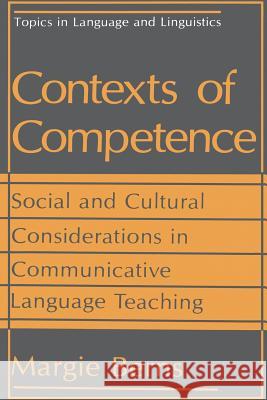Contexts of Competence: Social and Cultural Considerations in Communicative Language Teaching » książka
Contexts of Competence: Social and Cultural Considerations in Communicative Language Teaching
ISBN-13: 9781475798401 / Angielski / Miękka / 2013 / 186 str.
The introduction of communicative competence as the goal of second and for- eign language teaching has led to recognition of the role of context in language learning and use. As communicative competence is defined by the social and cultural contexts in which it is used, no single communicative competence can serve as the goal and model for all learners. This recognition has had an impact on program design and materials development. One significant change is that the choice of a teaching method is no longer the primary concern. Instead, the first step for the program designer is becoming familiar with the social and cultural features of the context of the language being taught. This includes a consideration of the uses speakers make of the language, their reasons for using it, and their attitudes toward it. Contexts of Competence: Social and Cultural Considerations in Commu- nicative Language Teaching explores the relationship between context and com- petence from a theoretical and practical perspective. Its audience is applied linguists in general and language teaching practitioners in particular. The overall aim of its five chapters is to provide a framework for consideration of various contexts of language learning and use and to guide the implementation and development of models of communicative language teaching that are responsive to the context-specific needs of learners.











